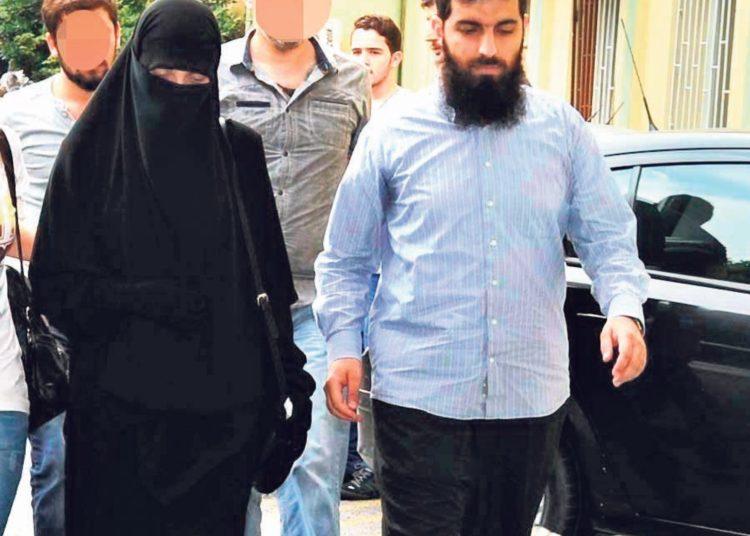
Erdogan gov’t continues to release jihadists from prison following controversial election alliance
The government of Turkish President Recep Tayyip Erdogan continues to release individuals affiliated with the Free Cause Party (HÜDA PAR), the political wing of the Iranian-backed Turkish Hizbullah with whom he formed an alliance prior to the general election in May. Most recently, Abu Hanzala (real name Halis Bayancuk), a jihadist preacher who encouraged many young men to join al-Qaeda and the Islamic State in Iraq and Syria (ISIS), was released on Monday.
According to reports in the Turkish media, one of the conditions set by HÜDA PAR for supporting Erdogan in the election was the release of Bayancuk. Prior to his release, videos containing Bayancuk’s radical speeches had been removed from the internet by his followers.
Nordic Monitor previously reported that Abu Hanzala’s network is up and running in Turkey with the full knowledge of the Turkish authorities.
The group in fact expanded its operations with a new entity called Ecir Kapısı Hizmet Eğitim ve Kültür Derneği, a front charity that helps raise funds for the group, established in April 2019.
The charity’s records, reviewed by Nordic Monitor, show that its license was approved by the Interior Ministry under registration number 34-251-178 and that it is currently listed as an active organization.
The association raises funds in foreign denominations and Turkish lira using Kuveyt Türk, an Islamic lender run by close associates of the Turkish president, and the Wise money transfer network, formerly known as TransferWise, a London-based financial technology company.
It has branches in several provinces including Diyarbakır, Bursa, Konya and Van.
The Hanzala group’s publishing house, Tevhid Kitabevi, based in Konya, also remains active in selling books, while its online version disseminates Abu Hanzala’s articles and sermons.
Abu Hanzala, now 39 years old, has been under the monitoring of Turkish police since 2007, when he started preaching radical views in line with al-Qaeda ideology.
Abu Hanzala spent four years in Egypt but had to flee to Turkey when Egyptian authorities launched a crackdown on his group there. He was involved in the Turkish al-Qaeda network after Habip Akdaş, a chief al-Qaeda figure in Turkey who carried out the deadly 2003 attacks on the British Consulate General, the local HSBC headquarters and two synagogues in İstanbul, was killed in a US airstrike in Iraq.
Hacı Bayancuk, the father of Abu Hanzala, was a commander in the military wing of Turkish Hizbullah as well as a member of Hizbullah’s Consultative Council in 1992. Zekeriya Yapıcoğlu, the chairman of HÜDA PAR, served as the lawyer for Hacı Bayancuk, who was sentenced to life in prison.
Abu Hanzala was arrested in June 2017 and sent to jail when he criticized government officials that same year after a planned speaking engagement was cancelled by the Ankara governor amid criticism from opposition parties.
At the first hearing on April 9, 2020 the court ruled to release him, but he was quickly rearrested when opposition parties questioned the release in parliament.
He was also one of the preachers who inspired the killer of Russian Ambassador Andrei Karlov in December 2016. According to a forensic report, there was a record of an August 25, 2016 search on YouTube of Hanzala’s videos on a computer used by assassin Mevlüt Mert Altıntaş, a police officer. Immediately after shooting the ambassador, Altıntaş declared he had acted because of Russian intervention in Syria and made a jihadist hand gesture.
Before Abu Hanzala, another Hizbullah convict was recently released. In line with a decision signed by Erdogan and published in the Official Gazette on May 4, the life sentence of Hizbullah militant Mehmet Emin Alpsoy was commuted on the grounds of old age. Alpsoy, who was arrested in Ankara in 2000, was accused of the abduction and torture to death of three people in Ankara. During the trial, Alpsoy expressed no remorse for his actions.
The release of incarcerated Hizbullah members based on electoral cooperation with HÜDA PAR is not new. Previously, during the local elections of 2019, the Erdogan government facilitated the release of four Hizbullah militants in response to HÜDA PAR’s decision to support the ruling party by not nominating their own candidates.
As a result, three Hizbullah militants — Muhammet Ömer Faruk Aydın, Mehmet Emin Can and Feysel Gürses — who were accused of participating in the killing of 20 people and injuring 31 in 2020, were released from pretrial detention following the court’s decision for a retrial. Another suspect, Siraç Şanlı, who was also tried in the same case and faced a life sentence, had been on the run for 25 years and surrendered to the police after the court’s decision. After his statement was taken, Şanlı was released without spending a single day in custody.
In 2011, as a result of amendments to the Turkish Penal Code, eight defendants, including Hacı İnan, a top commander in Hizbullah, were released due to their prolonged detention and immediately fled to Iran.
Source » nordicmonitor.com





